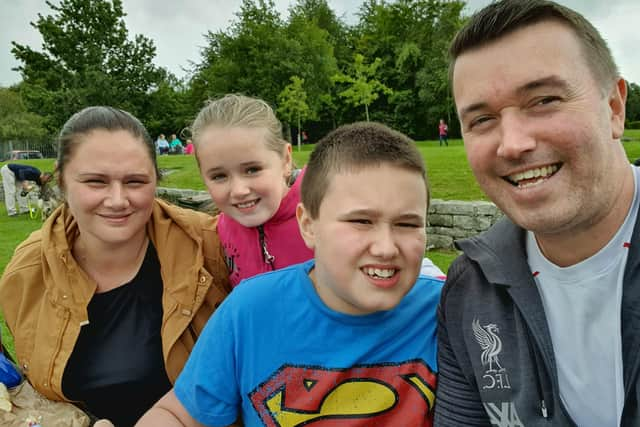Autistic people and their families “abandoned” during pandemic
and live on Freeview channel 276
Laura Flanagan said the coronavirus pandemic meant her son Eoin, who is non-verbal, could not go to school or avail of the activities which are part of his normal routine.
“At the start of lockdown they (the government) said about vulnerable children being given places in school, but when it came to special schools, they all closed here,” she said.
Advertisement
Hide AdAdvertisement
Hide Ad“People need to realise that for children with special needs, it’s not just a school, that’s where they get all their therapy, it’s part of their routine, it’s part of their life and it’s not just as easy to explain to them that it’s closed. Schools and respite services for children with disabilities are essential services, just the same as they would be for older people who need care.”


Laura said being in the house all day with nothing to do, meant Eoin would “fixate” on things.
“The fact that he wasn’t getting out and about and doing things meant it was harder to get him to sleep and harder to keep him asleep as well.
“One of the big things he would be fixated with is food, so if he would wake up at 2am he thinks that’s breakfast time, and would want his breakfast and that would be him up for the day. Obviously that means it’s a very long day for us to get in.
Advertisement
Hide AdAdvertisement
Hide Ad“As the day goes on his medication wears off so he becomes more agitated, he would get upset, he would cry, he would hit out, scream - if that is going on throughout the day it is very tiring and stressful.”
Laura added: “Eoin is very routine-bound. His whole day is - get up, go to school, go to his club, have dinner - everything has to be laid out for him.
“He doesn’t watch TV, he doesn’t play video games, he doesn’t even play with Lego, all he really would do is watch small, 10 second clips on YouTube. That would be his day and we just found it very difficult to get through.”
Laura said providing round-the-clock care for Eoin meant there was less time for her nine-year-old daughter Aoife.
Advertisement
Hide AdAdvertisement
Hide Ad“We literally had no time and felt our daughter was a bit neglected.”
According to a new National Autistic Society report, the coronavirus pandemic has had a disproportionate and devastating impact on the mental health, wellbeing and education prospects of thousands of autistic people and their families.
Shirelle Stewart, director, National Autistic Society NI, said: “Autistic people and their families have been struggling to get the care, support and understanding they need for years and things have been made even harder by coronavirus. They feel abandoned and left stranded.
“The rapid loss of mental health services, education and social care supports have thrown many people into crisis. We are calling on the Northern Ireland Assembly to take action so that people are not left stranded, in the event of another wave or lockdown.”
Comment Guidelines
National World encourages reader discussion on our stories. User feedback, insights and back-and-forth exchanges add a rich layer of context to reporting. Please review our Community Guidelines before commenting.